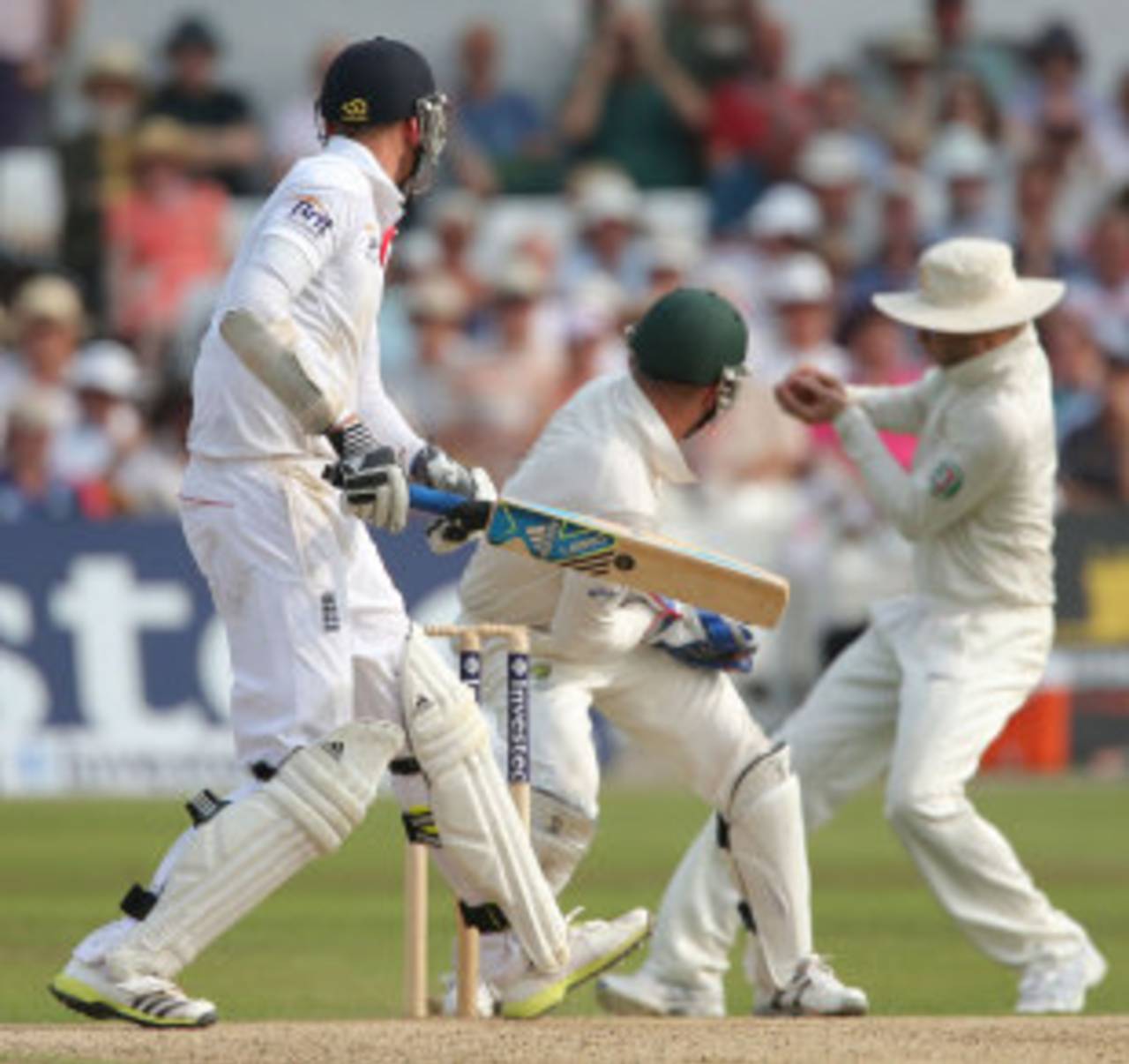In this era of technology and television replays, it's about time that decision-making was concentrated entirely with umpires. Walking is undoubtedly done with the best of intentions but ultimately, it helps nobody.
When Rangana Herath seemingly edged the ball behind in the tense final over of the Lord's Test, the umpire Paul Reiffel was motionless. Herath thought he was out and walked, and the umpire signaled to the appealing Stuart Broad that the batsman had chosen to exit of his own volition. With only a handful of balls to negotiate to save the Test, a wicket was potentially a match-defining event; and in a series of just two games, potentially a series-defining event.
Replays showed comprehensively though, that like with Edgebaston 2005, the ball had hit Herath's glove when his hand was off the bat. He was technically not out, but had voluntarily walked off anyway. This was the equivalent of someone being falsely accused in a court of law, and admitting to doing wrong because they aren't aware of their own innocence.
In hindsight, Herath looked very silly. If that had led to a Sri Lankan loss, it would have made him public enemy number one.
But what does this have to do with the laws and spirit of the game?
The perception of the image of cricket; particularly Test cricket, is very important to the ECB and the MCC.
Lord's has the spirit of cricket plastered on numerous boards, on the ground; and it is of course the body that makes the rules and holds the traditions of the game. It wants to preserve those traditions that they purport to have established, such as sportsmanship and playing fair.
The integrity of the game is thus crucial, so it is baffling that the laws and traditions are often at times at loggerheads. One such example is walking, whereby the umpire is essentially superseded by a player deciding on his own that he is out, even - like in this case - when he isn't.
If an outsider saw this, she would think - "why not just let the umpires do their job?"
There are systems in place too. The umpire should be allowed to function without the need for intervention by players. Each team has a number of reviews to challenge what they deem to be bad decisions.
This does not undermine the umpire though, because each team has a limited number of reviews [rightly so], and all reviews are relative to the original decision; with only the most compelling circumstances demanding an overturning of the decision.
The DRS system is in there to change bad umpiring decisions using available technology; but it maintains a healthy role and respect for the umpire.
Walking doesn't.
In football, a player cannot pick up the ball and overturn the referee's decision for the sake of playing 'fair'. In no other sport can the players decide their own fate; so given this fact, it seems odd that in cricket, players are allowed to walk off and decide they are out, and be berated as immoral if they don't.
If an umpire say's not out, it should be not out. If the fielding side thinks the batsman has hit it, then the fielding side can challenge the decision. If the umpire gives him out wrongly; the batsman can challenge it.
That's how it should be, as that maintains respect for the authority of the umpire, and ultimately that is the cornerstone of playing fair and having an even, respectful game.
If you have a submission for Inbox, send it to us here, with "Inbox" in the subject line Jack Mendel writes about cricket on the Sideline Agenda and runs his own blog, Stumpycricket. He tweets here
